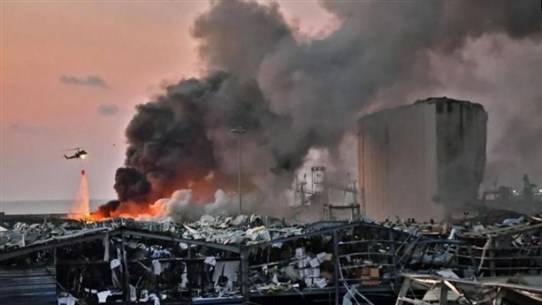The investigation file regarding the port explosion is once again in the spotlight after nearly a year since investigating judge Tarek Bitar stepped away from the case, awaiting the Supreme Court's General Assembly to rule on the lawsuits filed against him. The file has seen various twists and turns, most recently the failure of the notion to appoint an alternate judge to decide on the requests for the release of detainees, following Finance Minister Youssef Khalil's refusal to sign a decree for partial judicial appointments. This refusal coincided with the rejection by former President Michel Aoun of the proposed decree for judicial formations and transfers prepared by the Supreme Judicial Council.
In this context, lawyer Cecile Roukoz clarifies to "Nidaa Al-Watan" that the failure to pass the decree for judicial formations and appoint original presidents for the Court of Cassation in order for its General Assembly to decide on the disputes does not prevent the appointed presidents from forming the General Assembly, especially since Article 5 of the Judicial Authority Law indicates that the General Assembly consists of the presidents of the chambers of the Court of Cassation. She emphasizes that the legislator’s failure to distinguish between original and appointed presidents opens the door for the appointed presidents to fulfill their role specifically in forming the General Assembly. Their presidency of the Court of Cassation enables them to issue rulings that could be as severe as the death penalty, confirming that there is no objection to them forming the General Assembly and deciding on the disputes raised by deputies Ali Hassan Khalil and Ghazi Zaiter against Judge Nagy Eid, which require the General Assembly's convening to rule on them. They may also file another dispute against Judge Jean Mark Aouiss rather than a recusal after Judge Nagy Eid stepped down due to feeling compromised, appointing Aouiss in his place, taking advantage of the incomplete General Assembly.
The lawsuits will not stop here, as they are set to file a dispute against Judge Suhair Al-Harakah who accepted the recusal of Judge Nagy Eid, as well as against Judge Aboud's decision, which appointed Judge Jean Mark Aouiss to decide on the recusal of Judge Tarek Bitar. This confirms an intentional effort to obstruct the investigation and bind the judiciary. Roukoz stresses that their demand for the convening of the General Assembly by the appointed presidents is not a new request; rather, the priority of the judicial authority has been to appoint original judges.
Meanwhile, the President of the Supreme Judicial Council and former President of the State Council, Judge Dr. Ghaleb Ghanem, confirms to "Nidaa Al-Watan" that he advocates for practical solutions aimed at facilitating public services, which are certainly preferable to paralyzing them, especially given the existing exceptional circumstances and the disruption of judicial work related specifically to the highest judicial authority, namely the General Assembly of the Court of Cassation.
Regarding the assembly of the General Assembly of the Court of Cassation with the original and appointed chamber presidents, he clarified that the legislator has primarily aimed to facilitate the assembly through limiting the quorum to the heads of five chambers of the Court of Cassation alongside the chief judge. He pointed out that, although the General Assembly of the Court of Cassation has never convened with anything other than original judges, the law does not restrict its composition to original judges, opening the door for the possibility that the General Assembly could be formed by appointed chamber heads to facilitate judicial work, whether in relation to the investigations into the port case or other files that may be presented to the General Assembly. He linked the progression of this procedure to the approval of the Supreme Judicial Council on the matter or specifically to an agreement between the chief judge of the Court of Cassation, Chief Suhail Aboud, and other chamber heads regarding the necessity of the presence of either appointed or designated judges, concluding by emphasizing that the urgent need to facilitate public service today encourages the consideration of this procedure.




